GreenWave’s farm and nursery function as a commercial farm and innovation hub. We sell what we grow and test new designs and technologies to help farmers scale their operations.
Farm
We grow a mix of shellfish and seaweed that goes to our local Community Supported Fishery program, restaurants, and value-added products. The farm serves as a field research site where we test the latest technology and farm designs.
Seed Bank & Nursery
GreenWave operates one of the largest sugar kelp seed production facilities in the United States, growing the majority of kelp seed for farmers in Southern New England. We use our facility to broadcast live trainings for hatchery technicians around the country and to conduct cutting-edge research on induced sporing and other strategies to build a resilient seed supply.

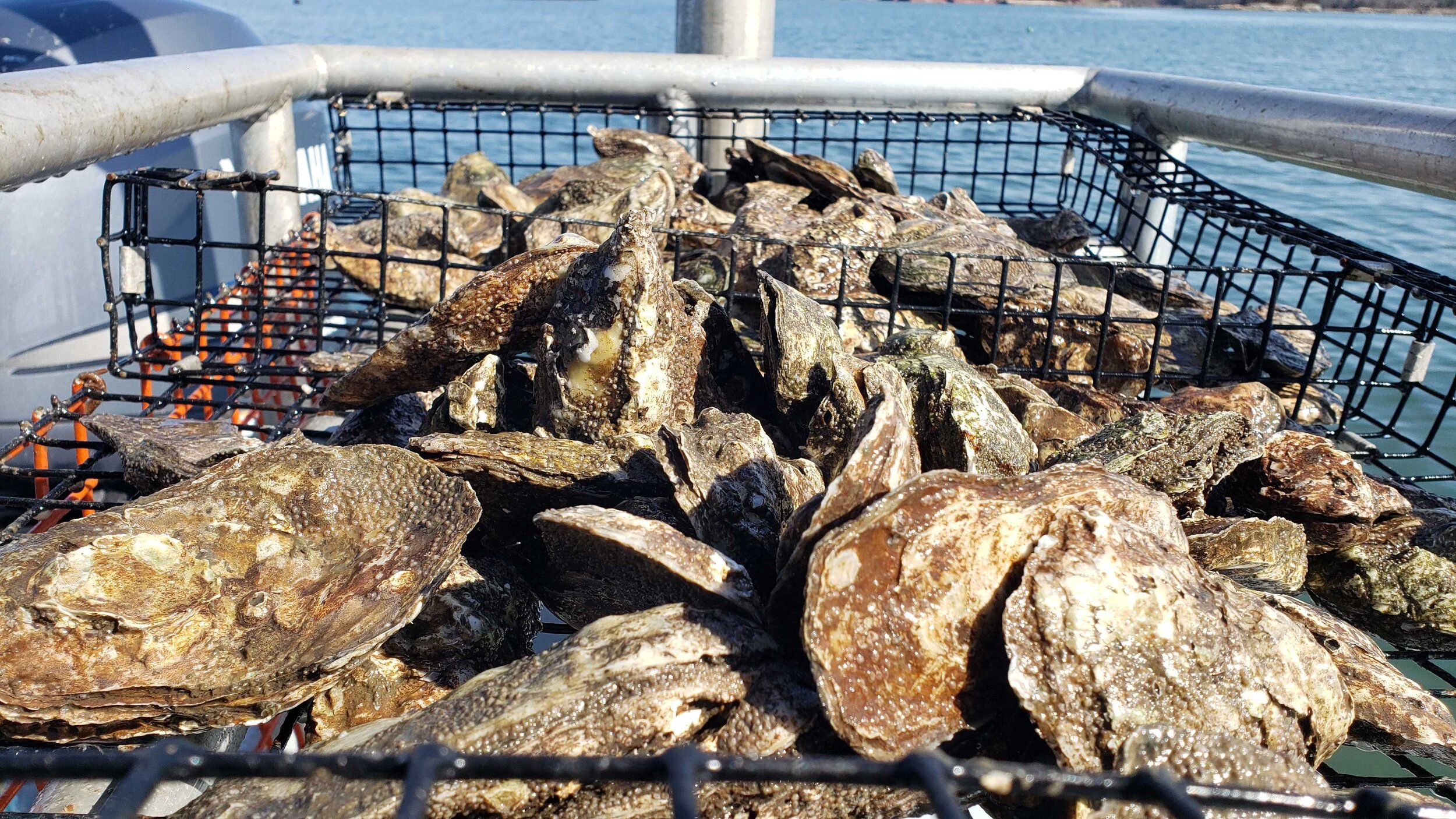
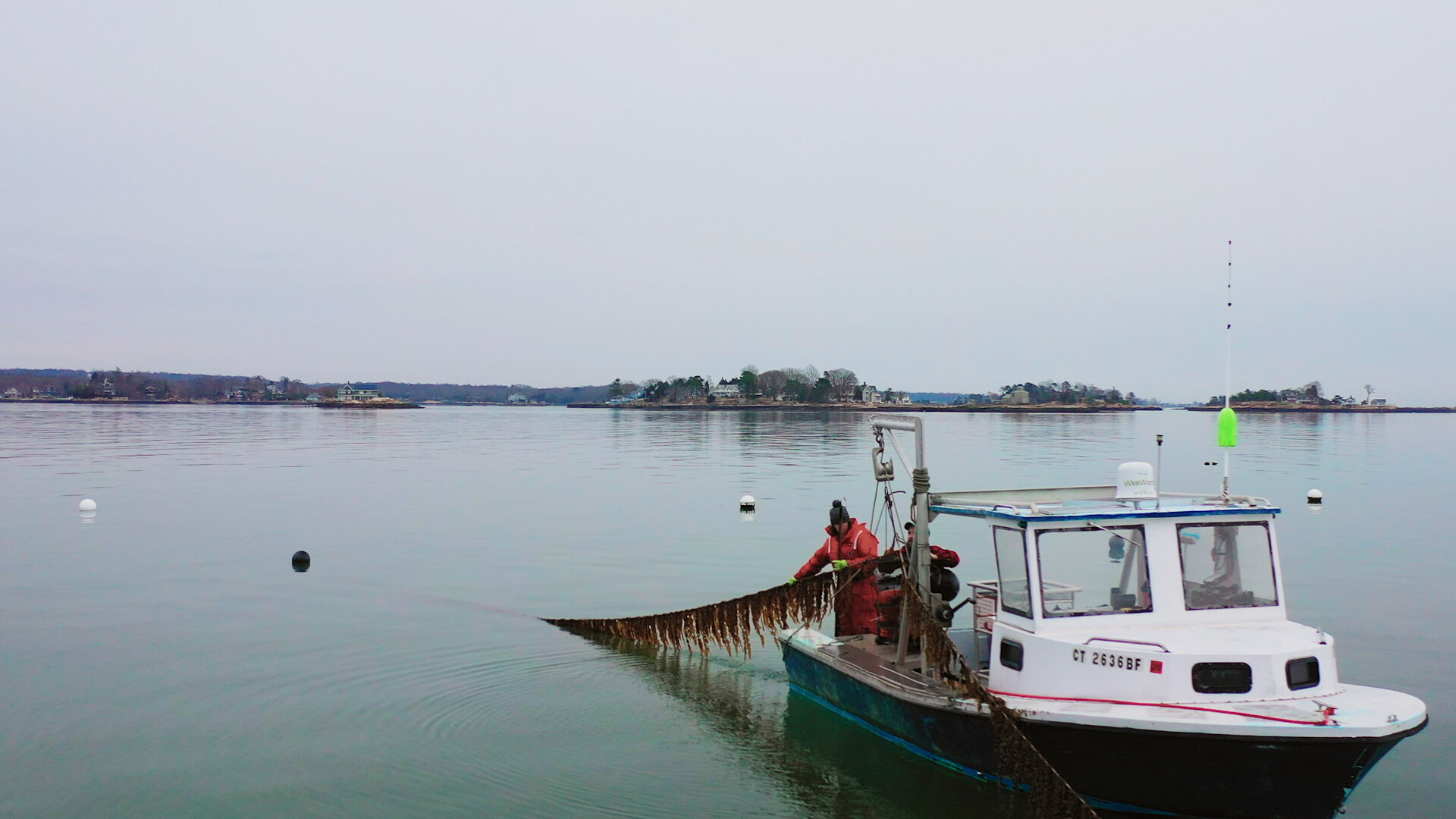


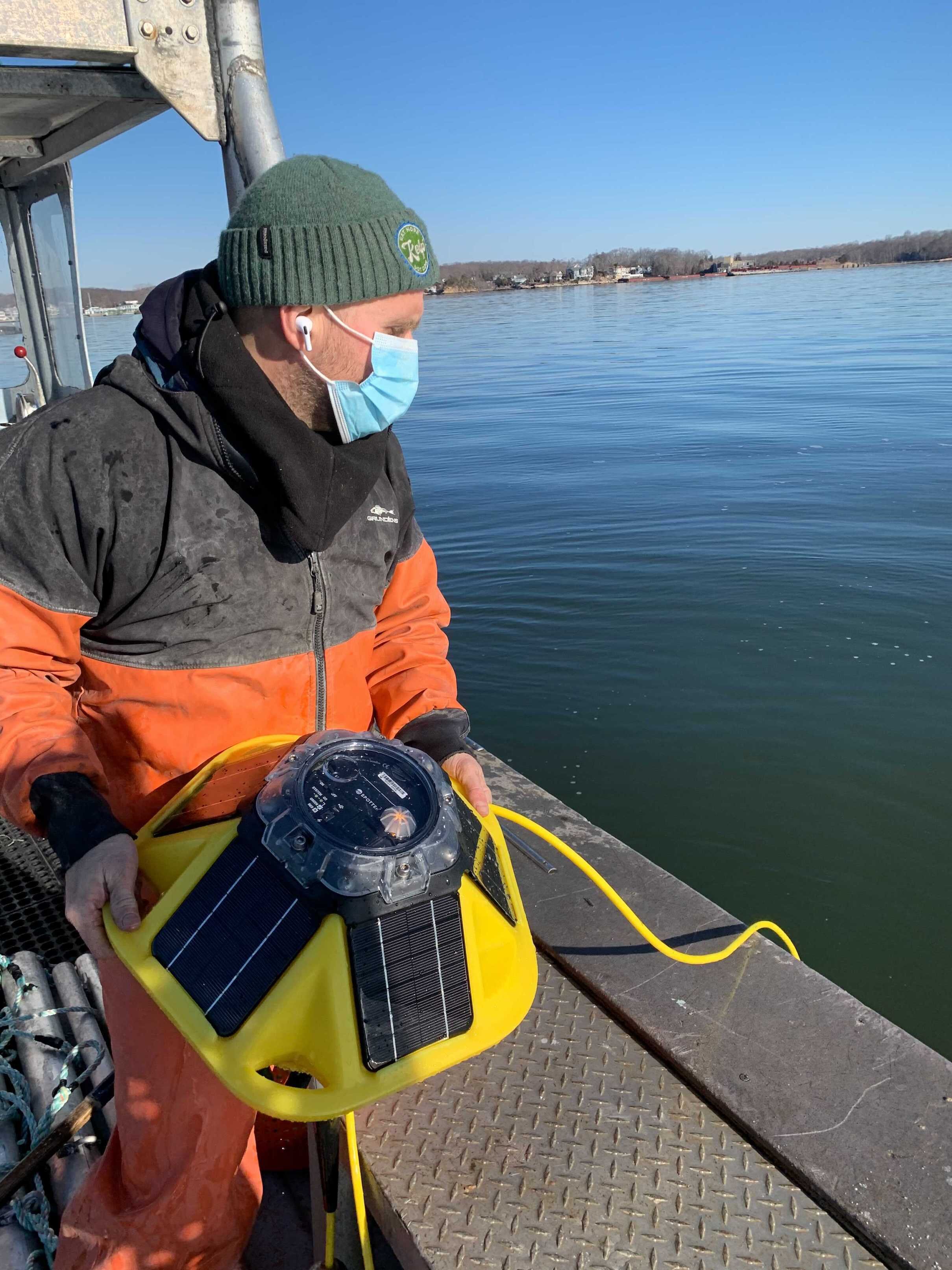
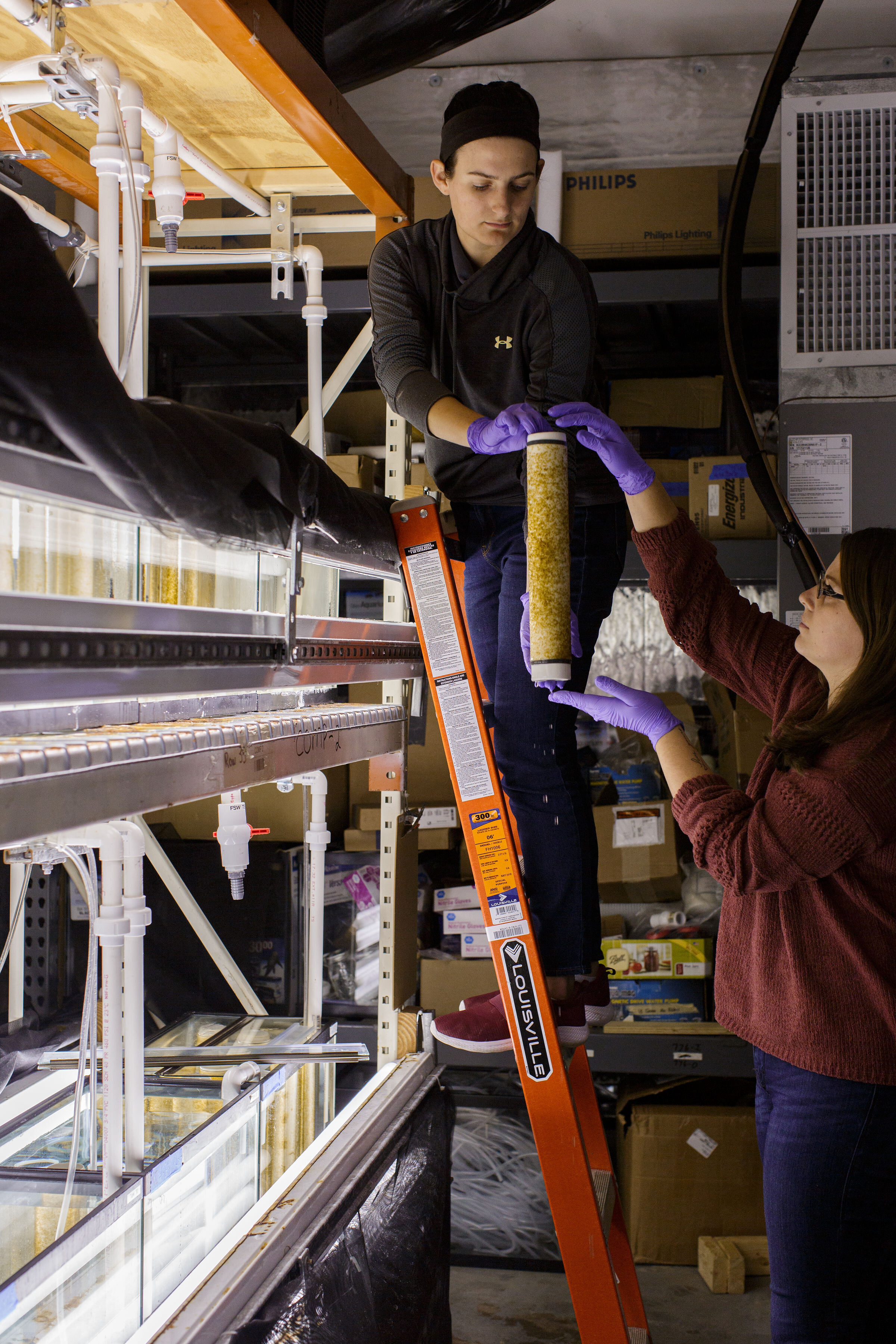
Current Projects
-
Soil & Sea Study
Regionally produced kelp products will provide land-based farmers with a powerful new set of tools to reduce agricultural emissions and impacts. GreenWave’s R&D team is collaborating with Cornell Cooperative Extension and NC State University to measure the impact of kelp fertilizer on curbing the release of nitrous oxide, a greenhouse gas that is 300 times more potent than carbon dioxide.
-

Induced Sporing
By mimicking environmental triggers, GreenWave’s hatchery team is researching ways to prompt kelp blades to produce reproductive tissue in a controlled lab setting. Induced sporing on a larger scale offers the potential to build a readily available kelp seed bank, giving ocean farmers a reliable head start to the growing season and reducing the dependence on wild kelp populations.
-

Carbon Life Cycle Analysis
In the wake of accelerating climate change impacts, investors, philanthropists, and government agencies are pouring resources into emerging greenhouse gas emissions markets. GreenWave is working with RISE Research Institutes of Sweden to measure the carbon footprint of GreenWave’s ocean farm. Our goal is to develop foundational data in order to spur investment regenerative ocean farming and to ensure that regenerative ocean farmers benefit from the climate services they provide.
-
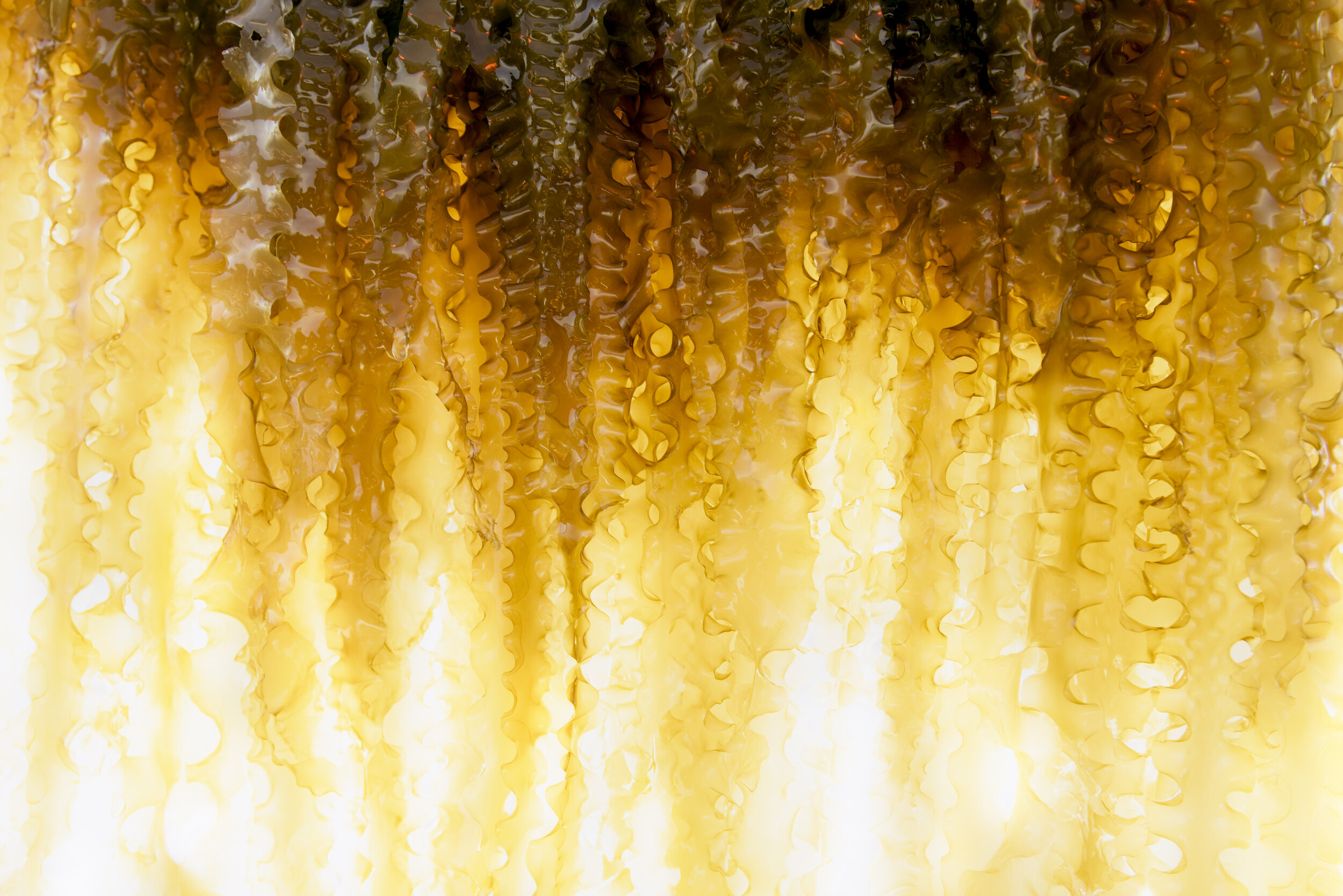
Kelp Climate Resilience
In partnership with scientists from WHOI, UConn Stamford, and the USDA Agriculture Service at Cornell, GreenWave is testing the kelp strain viability. The goal of this kelp breeding study is to identify kelp strains that will perform better in the era of climate change and tolerate offshore conditions. As a U.S. Department of Energy ARPA-E research site, GreenWave grows, harvests, and phenotypes more than 100 varieties of sugar kelp on our farm to better understand ways to improve the productivity and profit of kelp farming for food, animal feed, and biofuels.
-

Blue Technology
GreenWave tests new farm designs and sensors to help farmers increase yields and climate impacts. In partnership with SoFar and NOAA, we’ve deployed cutting-edge sensor technology to push forward the next wave of predictive ocean farming. Farmers can use sensors to refine their farming methods, boost their adaptability, and measure a host of ecosystem services using farm management software.
-

Kelp Reforestation
In collaboration with The Nature Conservancy, GreenWave deployed the first commercially licensed kelp farm in California to measure the per acre cost of statewide reforestation efforts. This farm will lay the groundwork for scalable Blue Carbon zones dedicated to a mix of reforestation and commercial farming that create jobs, produce food, and mitigate climate change.
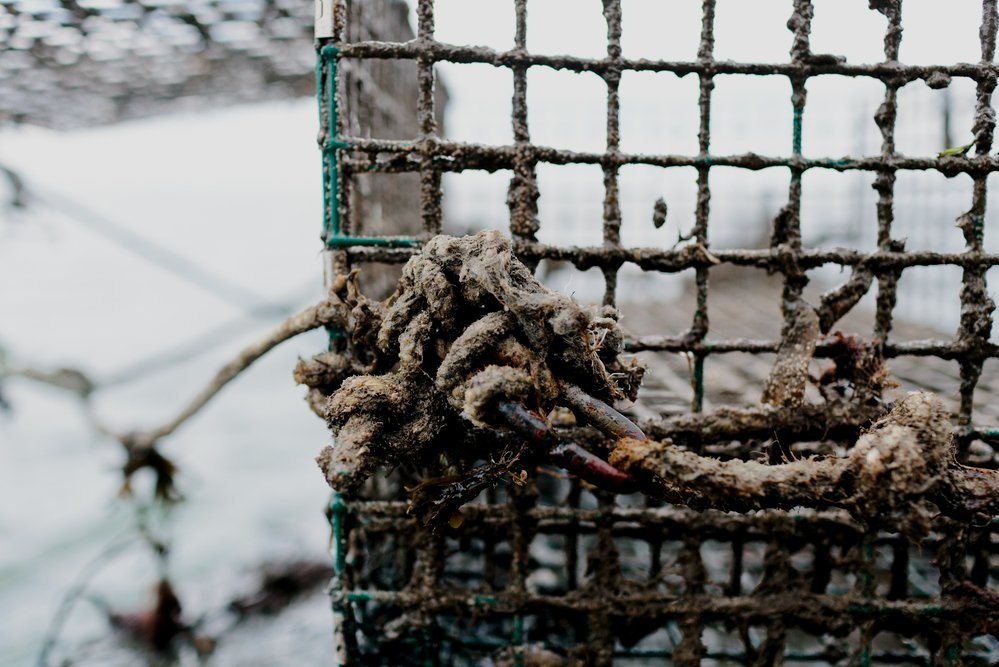
Want the latest GreenWave news?
Sign up to receive GreenWave’s Catch of the Month.
